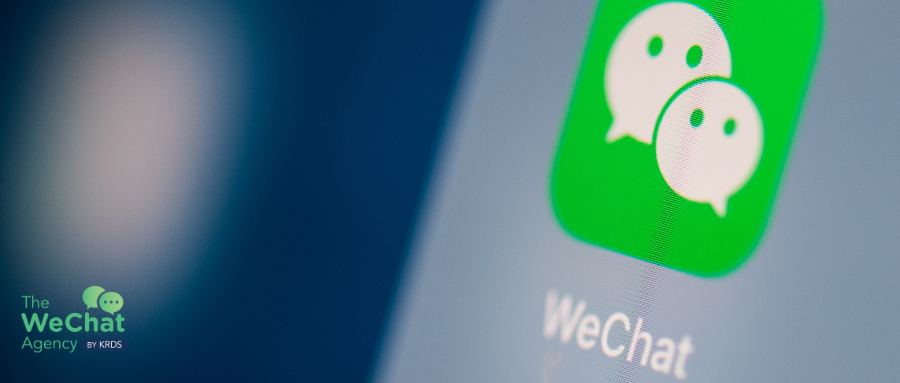WeChat Tests a New Retweet-Like Feature
The feature allows users to re-share content posted by others. Users can press and hold any post on Moments to activate the re-share function. The feature will make it easier for WeChat to track the source of popular posts.
WeChat also added more support for embedding images and files in group announcements.
Link: https://technode.com/2022/04/24/wechat-tests-a-new-retweet-like-feature/
Introducing WeChat Farm, A New Opportunity for Luxury Brands
What Happened: WeChat has introduced a new feature that allows users to express their moods or feelings by using a new option called “Add Stickers.” To express their status, users can now use whimsical animal stickers as well as backgrounds that match cartoon memes and emojis.
The Jing Take: In the digital era, social currency, or influence on social networks and communities, is crucial. A brand might easily be forgotten if it does not understand how to use social marketing, especially in China.
As sections of China remain closed, what better way for luxury to experiment with the burgeoning digital fashion sector than to offer WeChat avatars? The fad is still in its early stages, but there is no better moment to get involved than when people are cooped up at home and looking for fresh online entertainment options.
Link: https://jingdaily.com/wechat-farm-sticker-digital-luxury/
How Luxury Brands Should Navigate Chinese Fonts
A new initiative aims to “rectify the problems of incorrect and non-standard use of Chinese characters and to eliminate ‘ugly’ and ‘weird’ font usage which contain vulgar and sloppy exaggerations and deformations in fonts, or violate the writing norms, cultural connotations, and aesthetic standards of Chinese characters.”
Though characters appear to be an obvious and go-to strategy for companies in China, they are one of the most difficult aspects to design, particularly when it comes to commercial font selections.
Link: https://jingdaily.com/chinese-fonts-regulations-dior-prada/
ByteDance Tests a New Social Media App Targeting Power Readers: Report
- ByteDance, the creator of hugely popular short-video apps Douyin and TikTok, is reportedly internally testing a new news aggregation social app called Shiqu.
- The new app could put ByteDance in competition with other Chinese apps that focus on creating a thinking community, such as the social and review platform Douban and Quora-like Zhihu.
- Shiqu looks to be catering to a more sophisticated user base that wants a customized reading experience and communities to discuss ideas.
- At the moment the app still hasn’t been opened for public registrations.
Link: https://technode.com/2022/04/06/bytedance-tests-a-new-social-media-app-targeting-power-readers/
This Generation of Young People Refuses to Wait Long for Pre-sale
Zhang Xin, a Post-90s girl, thought as a consumer that she was spending money to find rage by going from spot to pre-sale for 7 days and then to pre-sale for 15 days. Zhang Xin finally broke through after a 30-day or even 45-day pre-sale. There are millions of people in the small red book with the same concept as her, and everyone is suffering from pre-sale.
Young people are no longer silent in order to purchase clothing in stock. They seek to disrupt the pre-sale routine and no longer serve as a “scapegoat” for corporations looking to transfer risks. # The topic of extraordinarily long pre-sale # related content, which has been read by more than 100 million Weibo hot searches and 5 million Xiaohong book readers This year’s youth are attempting to show their discontent.
A Taobao customer service said that the return rate of pre-sale clothes is much higher than that of spot goods, and the return rate of clothes with a pre-sale period of more than 15 days can even reach 90%.
Even if the return rate stays high, the shop will still choose for pre-sale. In comparison to consumer complaints, store owners are more concerned about the potential of an inventory backlog. No one can anticipate the sales amount with any degree of certainty. Pre-sale has become the most secure option for shoppers in times of tremendous uncertainty.
If the pre-sale period in pinduoduo surpasses 7 days, the products will not be featured on the platform first. Previously, Taobao had temporary rules in place, and TikTok and the sale of items were not prioritised.
Link: https://mp.weixin.qq.com/s/QqbEyfeKJ-v34HPMrxeZow
Will Farfetch Take the Lead in Online Luxury E-Commerce?
In 2020, Alibaba, Richemont, and Artemis invested $1.15 billion in Farfetch, a luxury retail site, and developed a marketing plan geared to the Chinese market. It will formally launch its flagship store on Tmall in March 2021, offering over 3,000 small and independent brands.
Now, as new COVID-19 outbreaks in China affect offline business once more, the industry behemoth discovers another massive growth potential. Here are a few reasons why Farfetch could become the top in luxury e-commerce.
Great performance on digital sales
In China, digital sales of personal luxury goods outpaced physical sales across all categories, increasing by almost 56%t. And this rapid digitalization has worked in Farfetch’s favour. In 2021, Farfetch achieved its first full year of profitability with revenue jumping 35% to $2.3billion, supported by over 3.6 million customers.
Forging strong ties with China’s VIPs
After acquiring New Guards Group in 2019, Farfetch eventually opened Tmall Luxury Pavilion stores for Off-White, Ambush, and Palm Angels in early 2022. In addition, the corporation has made a concentrated effort to build Chinese brands such as Shang Xia, Uma Wang, Canotwait_, and Team Wang.
Furthermore, the luxury platform is dedicated to a high level of localization, from employing social networks such as WeChat, Weibo, Douyin, and Xiaohongshu — its major traffic and conversion touchpoints — to developing customer interactions. Offering luxury events such as dinners, master workshops, and art exhibitions to “Private Clients” is a key element of Farfetch’s China business. Farfetch China is now the most localised Western luxury portal operating in China.
Investing in the future
It announced the acquisition of resale platform LUXCLUSIF in December 2021, with the goal of dramatically increasing its resale capabilities through features such as automated pricing and authentication.
Sustainable goods are also on the rise, rising three times faster than conventional commodities. That’s why, in October 2021, the British-Portuguese retailer created There Was One, a sustainable brand described as upgraded closet basics that transcend the hype.
Finally, Farfetch is also leaping onto the luxury beauty bandwagon, estimated to be the second-largest category within the personal luxury market after leather goods. In January 2022, it announced the acquisition of cult favourite luxury beauty destination Violet Grey — best known for vetting beauty products with its community of makeup artists, dermatologists, estheticians, and influencers
Standing out from the crowd
Despite mounting competition from international e-commerce platforms, Farfetch has maintained the strategy by focusing on both brand awareness and sales, boosted by its localization and diversification strategies.
Link: https://jingdaily.com/farfetch-luxury-ecommerce-alibaba-neiman-marcus/

